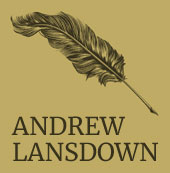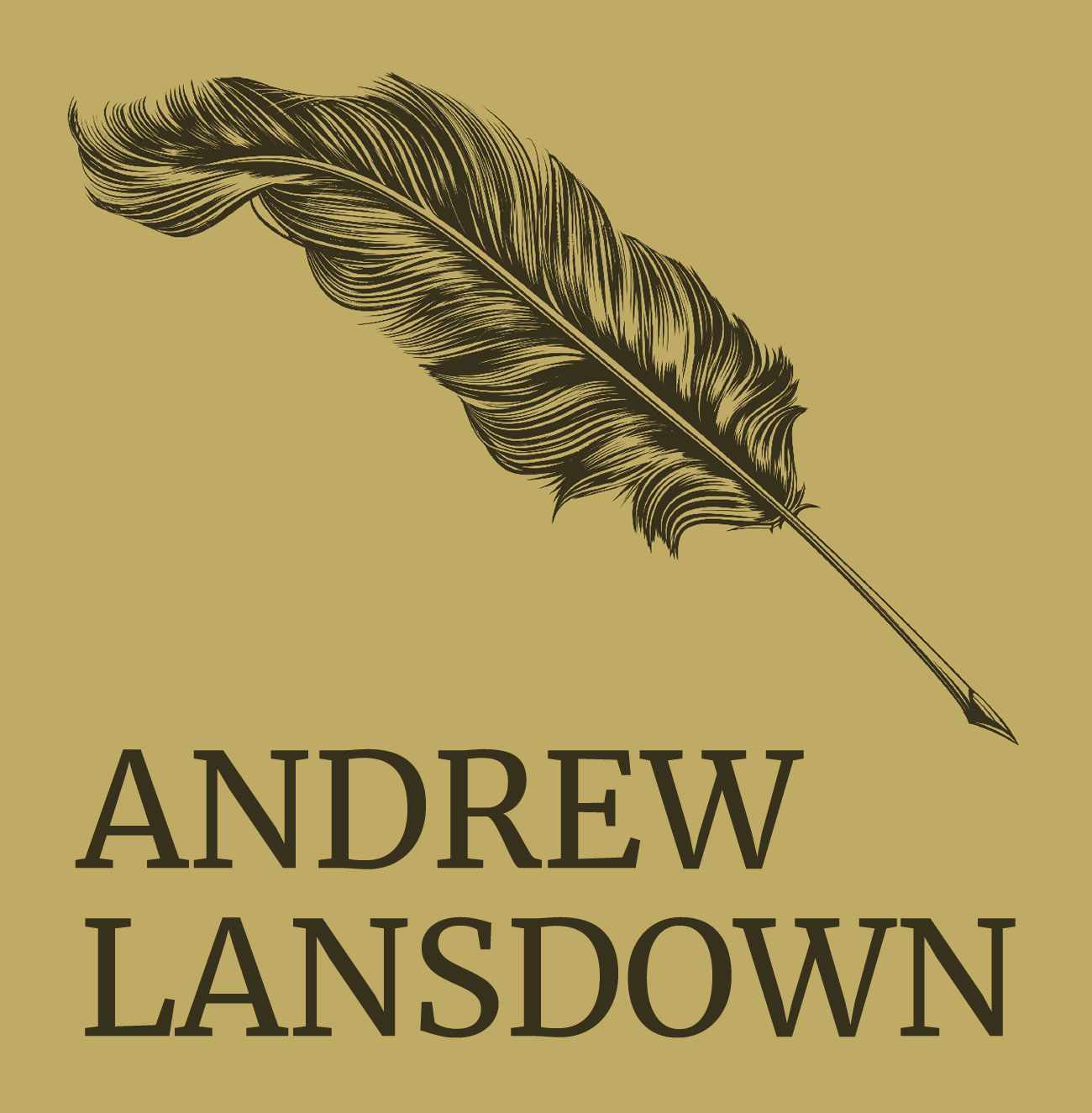
Distillations of Different Lands
Andrew Lansdown
Sunline Press (Cottesloe, WA), 2018
paperback, 144 pages
ISBN 978-0-9806802-9-4
BACK COVER BLURB
Andrew Lansdown’s poems have been published in numerous magazines, newspapers and anthologies. He has won various poetry awards, including the Western Australian Premier’s Award (twice) and the Adelaide Arts Festival’s John Bray National Poetry award. Distillations of Different Lands is his fifteenth poetry collection.
.
“At his best, Lansdown is one of the most assured of Australian poets working in the Imagist tradition … he has written a considerable number of poems which are perfect examples of their kind. They have a descriptive exactness and a seeming spontaneity, combining to produce a text to which one can imagine no change being made without damage.” — Geoff Page, A Reader’s Guide to Contemporary Australian Poetry
“This is poetry forged from a brilliant combination of observation and compassion, what [the Chinese philosopher] Mencius referred to as the “thinking heart” … Although great beauty and a sense of joy infuse these poems, it should not be thought that they are in any way merely “pretty” or dainty. … There is grit and blood and pain in this poetry, too …” — Shane McCauley, launching speech, Birds in Mind
THREE POEMS FROM DISTILLATIONS OF DIFFERENT LANDS
Forgetting
‘I long to pick/ Some forgetting-grass’ —
Ki no Tsurayuki, The Tosa Diary, 935 AD
For you I need a different flower,
brother, than the blue forget-me-nots.
Here, here in this world where you left me
I yearn for the sweet forgetting-grass
treasured by the ancient Japanese.
I want to search out and gather up
those grasses that take away grieving
by somehow infusing forgetting.
I want stooks of the stuff, large wigwam
stooks that can be shaken loose and strewn
to cover me with stalk, leaf and scent
from the loss of you and how you went.
© Andrew Lansdown
Water for Worship
Osaka
At Hozen Temple
a stooped Japanese man is
working the handle
of a cast iron pump, which is
spouting water to
a plastic bucket in which
it will be carried,
sloshing, ten paces then poured
in a granite bowl
from which it will be scooped with
a tin-cupped ladle
and tossed over a life-size
statue of Fudo,
the god of fire and wisdom,
covered now in moss
sustained by countless dousings
across the decades
from hopeful petitioners
like this very man
who is puffing while pumping
water for worship
as I write where I began
this poem at Hozen Temple.
© Andrew Lansdown
Travelling North
The Canada geese go over,
fly over in a skein,
high up and (I imagine)
honking beyond hearing.
And I suddenly wonder,
What am I doing here
in America travelling north
deeper into Wisconsin
where the first snows
have already fallen,
travelling north when
even the geese know
the killing cold is coming
and south is the place to go?
© Andrew Lansdown
REVIEW OF DISTILLATIONS OF DIFFERENT LANDS
Celebration and Beyond
by Hal Colebatch
Distillations of Different Lands
by Andrew Lansdown
Sunline Press, 2018, 144 pages, $25
I met Andrew Lansdown in 1974 when I was trying to teach Creative Writing at Curtin University of Technology and he was the best student in the class by a country mile. It was obvious that he had enrolled in the class not because it was easy but because he genuinely wanted to improve his writing skills. His voice was original and absolutely sincere.
Since then he has published a best-selling series of fantasy books in the US, two collections of short stories and fifteen books of poetry and verse as well as other work. Readers of Quadrant will be familiar with his poetry. He has combined what would be a more-than-respectable body of work for a full-time writer with a career as a Baptist minister and teacher. His religious sensibility as a theologian has given a special depth to his poetry, especially the celebratory poetry, and given it—even the short and humorous pieces—a special richness and wholeness.
All his books have been outstanding. One of his most interesting previous collections, Allsorts (2011) includes a seventy-page section for children on how to use poetic forms, making it a valuable handbook as well as an important anthology in its own right. Aspiring poets of any age would do well to read it, and poetry editors sick of receiving slabs of dull, chopped-up prose should be grateful that it is available.
Family life and his happy marriage are constant themes. His wife Susan has illustrated some of his books, and one collection is devoted to fatherhood.
He has the mark of a major poet in that as well as quantity of output, his command of technique continues to develop from book to book. He has worked steadily, advancing this technique, while the “generation of ’68” have come and gone, leaving nary a wrack behind nor a memorable line (except, perhaps for the memorably meaningless “Mallarmé’s curse hangs over Launceston”). One of the keys to his success is that he never for a moment loses sight of the need for poetry to communicate.
Even a couple of Andrew Lansdown’s poems which I found rather disgusting—about mouse-droppings and popping blow-fish—are technically accomplished miniature portraits of aspects of life. His celebratory poems are full of beauty.
Lansdown’s latest collection, Distillations of Different Lands, is a collection of largely imagist poems of Australia, Japan and the northern United States. Japanese poetic forms and disciplines have been a powerful influence on his work for some time and the cherry blossoms and medieval castles, temples and stories of Kyoto are strong influences in his imagination. From Japan, as well as birds, flowers and landscapes (and Christian martyrs) come legendary figures like the fox-god, Inari.
Birds have always been an important subject for him, not only for themselves, but as pointers to the wonder of creation:
The sound, and even
the force, of a small brittle
leaf striking a board—
the wren veranda-skipping
cheekily for biscuit crumbs.
[“Sounds and Wrens” – 1 “Afternoon Tea”]
“The Man with the Gun” is a lament for the days before Islam’s unremitting terrorist war on the West made even innocent actions fearful. (“The sergeant saw the man with the gun / was simply old and full of fun.”)
As I indicated above, not all the poems are celebratory. There are tragedies hinted in the background of a number of them:
Distracted briefly
by a bird hopping sideways
up a bamboo cane.
And I observe that it, too,
is struggling to keep a grip.
[“Birds of a Feather” – 1 “Slippage”]
One sees some of the angst that must touch every human life:
If only our hearts
were rigid like the segments
of timber bamboos
they, too, might have a limit
to the emptiness they hold.
[“Meditations on Emptiness” – 1 “Limit”]
Wisely, there are not many poems about poetry, but like the rest, these few are memorable:
Again the poet
settles to the priestly task
of redeeming words
from their base and futile state
and lifting them to Heaven’s gate.
[“The Poet’s Work – 1 “The Priestly Task”]
There is another perfect poem—and they are all perfect to my ear—on the grave of Basho, the greatest master of haiku. While he shares the master’s love of the deceptively small, Lansdown can also write of the great. Some of these poems, like “The Martyred Mother”, are tours de force, in this case of pity and terror.
It would not do these longer poems justice to quote them only in part. But let it be said that their sustained power never flags. “Mummy-long-legs” blends the comic and the gruesome in a way that reminds me of certain recent American legal proceedings.
“The Shodo Egret” is a wonderful poem, a genuine opening of the doors of perception. Then there is:
It has the grey robes
and the meditative pose:
perhaps the heron
on the temple bridge rail hopes
to become a Buddhist monk?
[“Japanese Heron” – 2 “Aspiration”]
Is it a heron
aspiring to return a priest
or is it a priest
reincarnated a heron …
or perhaps purely a heron?
[“Japanese Heron” – 3 “Speculation”]
A classic Japanese koan is put to new use:
The mosquito whines
at me, wanting instruction.
Very well, small one,
come here and meditate on
the sound of one hand slapping.
[“Mosquito Meditations” – 1 “Koan”]
Some day scholars may see the work of a small group of West Australian poets—Andrew Burke, Rod Moran, Philip Salom and Shane McCauley among them—forming, if not a movement, a distinct “voice” which has kept a poetry of strength and meaning alive in a fierce national drought. Andrew Lansdown has a major place in that company. He has been generous in promoting other poets on his website, and he gave much support to the gentle old poet William Hart-Smith when he was alone and nearly blind, and I guess that Hart-Smith has been an important influence on Lansdown’s work where he has presented poems as little “surprise packages”.
This book is precious for what it teaches the mind, the eye and the heart.
© Hal Colebatch
Quadrant, No. 551, November 2018

